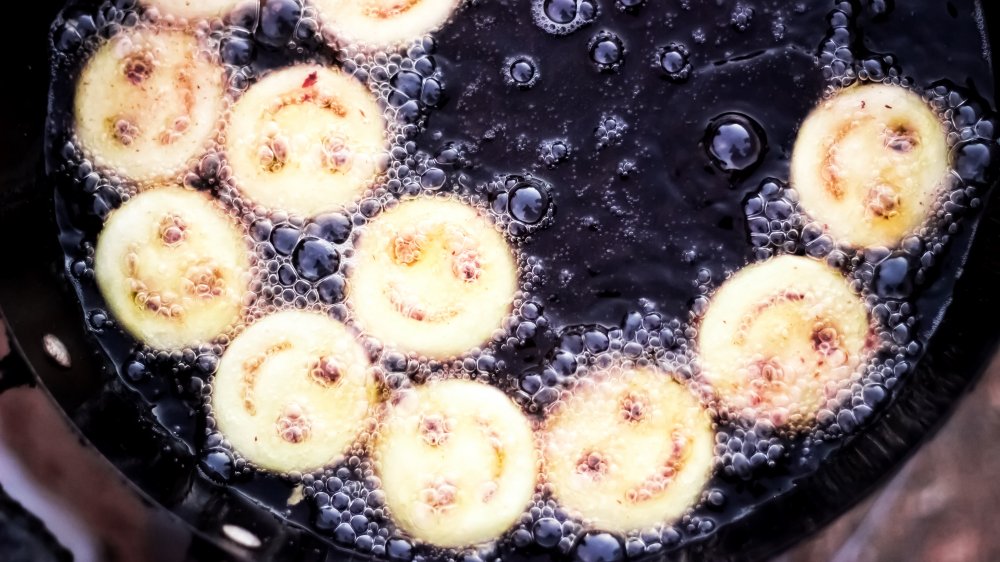Why You Should Never Put Oil Down The Drain
Consider this your public service announcement. Cooking oil should never ever be poured down the drain. Pouring oil or other cooking fats, like bacon grease or beef tallow, into your kitchen sink can lead to serious damage. It may clog your pipes, according to Lifehacker. Worse, depending on your setup, it may even affect your neighbor's plumbing or even your town's sewer (via The Daily Meal).
What do you think happens when you, innocently enough, rinse the leftover shortening from a batch of homemade fries down the drain? In many cases, that oil will harden from a liquid to a solid state as it cools. This is a clog just waiting to happen. The congealed oil will coat your pipes, especially the U-bend under the sink.
About that U-bend: Shane Mahaffey, master plumber and CEO of Towne Plumber told HuffPost, "Anything heavier than water gets caught here." That includes food scraps. Before you know it, you may end up with a stinky mess and a hefty plumbing bill.
Oil clogs the drain
Oils that remain liquid at room temperature, like olive and canola oil, can still wreak havoc. Oil doesn't mix with water and will end up coating your pipes. Mahaffey said, "The blockage created will eventually send the water in your sewer back up into your pipes."
If the oil does manage to clear the scene, it will make its way into the sewer system where it doesn't belong. Here it mingles with other people's discarded grease as well as wastewater treatment chemicals. When the fatty acids in oil encounter calcium, which is commonly found in sewer water, a waxy compound is formed. The result is a fat blob that sticks to other fat blobs, along with the sewer's walls and ceilings. An anchored blob, otherwise known as a "fatberg," can grow over time. One fatberg excavated from a British sewer weighed 130 tons. Don't believe us? Proof is on display at the Museum of London, where part of it has a live camera trained on it at all times.
Clearly, it's your civic duty to properly dispose of used cooking oil. Store it, don't pour it. Cooled oil can be collected in a container and then deposited in the trash. If you slip up, chase the oil with a pot of boiling water, followed by one cup of baking soda, then one cup of vinegar, and a final cup of water. Then, after plugging your drain for five to ten minutes, send through another pot of boiling water. That should keep the fatbergs at bay — at least if you don't dump oil down your drain on the regular.

